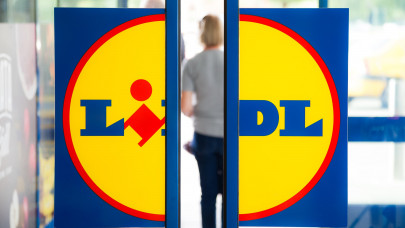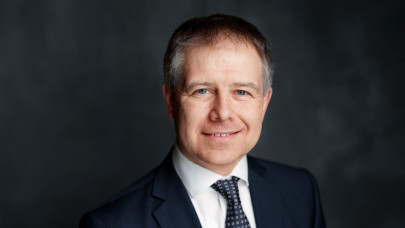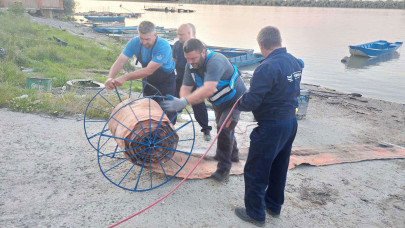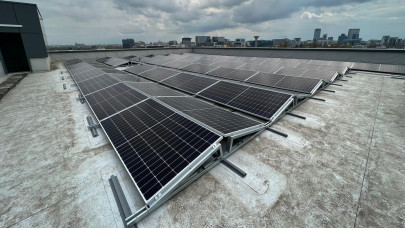In other words, 11 kg of WEEE per capita were collected in the EU in 2021, while the average of electrical and electronic equipment introduced on the market in the period 2018-2020 was estimated at 23.7 kilograms per capita of residents. The most effective were Latvia and Ireland, which reported collection rates of 60.2% and 63.8% respectively. The leading list is completed by Norway, Finland, the Czech Republic, Austria, Luxembourg, and Belgium, all exceeding 50% of the collection scale.
In the case of Romania, only an estimate is made, because the last figures officially communicated by the authorities are at the level of 2020. Thus, according to Eurostat's estimate, Romania is in the last position in Europe in the reference year 2021, with a collection rate of only 31.7%. Our country is followed in the ranking by Cyprus (28%) or Portugal (27%), but not even countries such as Italy, the Netherlands, or Malta have achieved WEEE collection rates exceeding 35%.
"It is important to note that the amount of electrical and electronic equipment introduced on the market has increased a lot in recent years. For example, between 2012 and 2021, the volume of electronics sold at the EU level increased from 7.6 million tons to 13.5 million tons. Therefore, the volume of waste collection does not keep pace with the speed of production and the level of sales of new equipment", according to the association.
Cristian Pocol, president of the RESPO WEEE Association, declares that the scale imposed by the WEEE Directive is almost impossible to reach even by the most developed countries in the EU, which is why new calculation methods will be implemented soon.
"This European directive raised the WEEE collection target from 45% in 2016 to 65% in 2019, and, by way of derogation, Romania, Bulgaria, the Czech Republic, Latvia, Malta and Poland began to report to this scale only from 2021. The market results recorded so far at the level of the most developed countries in the European Union show us that this 65% rate is impossible to achieve, so changes will be made to this Directive and the calculation method of the collection target, possibly even from next year. In Romania, the state authorities that by definition work for the benefit and interest of the citizens and whose activity should be public and transparent have no longer communicated the collection figures from 2020. The 31.7% rate for 2021 is only a Eurostat estimate, which shows that in our country the situation is very serious. There is no collection infrastructure well established and supported by specialists in the field, recycling plants are insufficient, and domestic legislation only hinders the activity of those who do their jobs fairly and responsibly. In addition, the authorities do not implement effective public education and awareness campaigns to make people realize that once electrical and electronic equipment is out of use, it becomes waste and must be handed in for recycling, not kept or thrown away”, declares Cristian Pocol, president of the RESPO WEEE Association.
While consumption increases from year to year, the population seems to have a hard time parting with electrical and electronic equipment that they no longer use, those that are either obsolete or defective. Many are kept in the house or are thrown in the household waste or the environment, thus becoming a major source of pollution and a danger to the environment as well as to human health.
According to the RESPO DEEE Association, over 40 million mobile phone chargers, which are no longer used, are in the homes of Romanians. Then there are over 23 million mobile phones, broken or no longer used, stored in drawers, more even than the population of the country.
By the end of use, they become waste electrical and electronic equipment (WEEE) that should be collected and offered for recycling, in order not to affect the environment and thus support the circular economy.
"Delivering for recycling all broken or out-of-use electronic equipment should become a moral obligation of every citizen. It is an act of responsibility not to throw such equipment in the trash or to keep it around the house. Recycling supports the circular economy, prevents mining from acquiring new resources, and protects the environment and also people's health. For example, smartphones contain rare materials such as tantalum, tungsten, gold, silver, or palladium. With every 10,000 mobile phones recycled, we avoid the mining of 26 tonnes of gold ore and 29 tonnes of silver ore. By reducing mining, greenhouse gas emissions from the atmosphere (CO2) are reduced. For example, to extract one kilogram of gold from mines, 23 tons of CO2, 27 grams of mercury, 22 grams of arsenic, and 2000 tons of waste are produced. In the hypothetical situation in which only 700 million mobile phones would be recycled, a total of 14,920 tons of gold, silver, copper, palladium, cobalt, and lithium would be generated, with a total value of 1 billion euros. All these materials will later re-enter the economic circuit as raw material and will contribute to the production of new devices", declares Cristian Pocol, president of the RESPO Association.
In Romania, people can hand over electrical and electronic equipment for recycling by ordering the RESPO box by phone or online, at www.respo.ro, in which, once received at home or any other mentioned address, they can insert the small electrical equipment, following for this box to be picked up by specialists and transported to recycling centers.
"The RESPO box is the solution we propose so that small electrical equipment does not end up in the landfill. This is made of cardboard and I think we should all have it in our house to collect waste. After it's full, we can take the box to partner stores that collect, we can take it out when the garbage truck comes or we can call tel verde to find out which is the nearest point", concludes Cristian Pocol, president of the RESPO DEEE Association.













